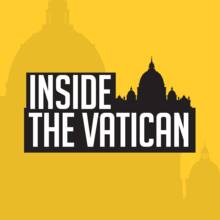Pope Francis canceled his trip to the United Nations’ COP28 climate conference due to his ongoing bout of bronchitis. In this episode of “Inside the Vatican,” veteran Vatican correspondent Gerard O’Connell and host Colleen Dulle discuss the Pope's health and his message on climate change.
[Listen and subscribe to “Inside the Vatican” on Apple Podcasts and Spotify]
In his address to the climate conference, which Cardinal Parolin delivered, the pope wrote: “I am with you because now more than ever, the future of us all depends on the present that we now choose. I am with you because the destruction of the environment is an offense against God, a sin that is not only personal but also structural, one that greatly endangers all human beings, especially the most vulnerable in our midst and threatens to unleash a conflict between generations.”
Colleen and Gerry also cover Pope Francis' decision to cut Cardinal Raymond Burke's salary and possibly evict him from his Vatican apartment. They analyze the reasons behind this decision and the implications for the Pope's relationship with his critics. Finally, they touch on the ongoing conflict in Gaza and the Pope's calls for peace.
Links from the show:
- Pope Francis to COP28: ‘Destruction of the environment is an offense against God’
- ‘Laudato Si’’ to ‘Laudate Deum’: What has changed in Pope Francis’ climate teaching?
- Pope Francis punishes Cardinal Burke, revokes Vatican apartment and salary
- Pope Francis, fighting bronchitis, appeals for ‘a new ceasefire’ in the Israel-Hamas war







